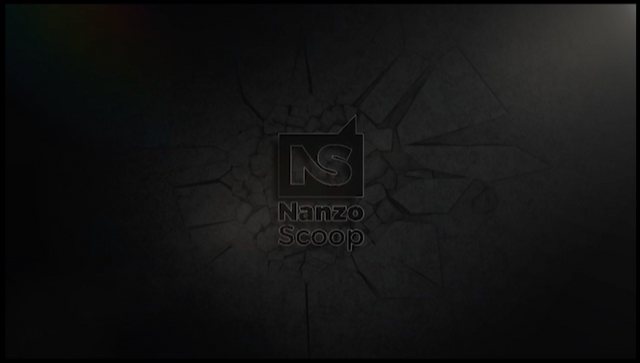
Tomorrow I’m going to the Blockchain Live conference.
To be honest I don’t usually go to Blockchain conference any more. Nowadays they come across more as money-making rackets than a useful forums for exploring the direction of the technology.
However the Blockchain Creatives Stage of Blockchain Live is holding a series of talks that I really want to go. It’s free and marry two worlds that I’m intimately familiar with. Namely Rights Management in the Creative Industries and Blockchain technology.
Never the twain shall meet
I’ve spent the best part of 20 years in TV and Radio Rights Management and almost 5 years exploring the Blockchain rabbit hole.
I’ve never really been tempted to fuse the two. I know it’s in vogue to see the ‘Blockchain’ as the panacea to all ills of every Industry use case however when you’re intimate with the inner workings of the Industry Leaders, you quickly realise the incumbents are going to be the last and most difficult to change.
Blue Sky utopia
With a blank piece of paper, the challenges of Rights Management in the Creative Industries seem a relatively straightforward one. It can be summarised like so,
- Content creators make content
- That content is used (exploited) in various different ways
- Content creators and contributors to the content (Rights Holders) get compensated for the use.
I can see how (on the same blank paper),
- Content could be represented and recorded on a Blockchain
- There could be a Smart Contract with each Rights Holders that defines how they get compensated for Use of the Content
- There could even be a Smart Contract that deals with Use Reporting
- The process of administering payments to Rights Holder can be automated in a trustless and immutable way
- Safeguards could be made to ensure personal and Business sensitive data could be encrypted
- A Closed/ Private (Pan-Industry) Blockchain could be used with strict access controls to further ensure buy-in
All this could mean, the process could be trustless, with
- Rights Holders no longer needing to rely on Content Providers to administer payments, once Usage happens, payments can flow directly to them.
- Content Providers (Broadcasters, Distributors etc) no longer need to deal with the burden of holding, managing and storing Rights Holders data in their siloed systems
The complex web of reality
Fleshed out, these ideas are great… on a blank canvas.
Hell if I had a couple of spare weeks I could even knock up a Whitepaper, complete with a token and ICO.
However the Creative Industry isn’t a blank canvas.
The back-offices of the Creative Industry leaders are awash with messy workflows and workarounds. The current backend systems and processes in existing media organisations rife with complexity and bloat. Administering Rights on the backend is a herculean task to automate effectively.
High Level Case study
If we just take one aspect of a Blockchain solution we may wish to overlay on the existing Broadcast Rights Management structure namely,
- There could be a Smart Contract with each Rights Holders that defines how they get compensated for Use of the Content
Most proof of concepts I’ve seen in “Blockchain circles” around how a Smart Contracts can define how revenue is split among Rights Holders is incredible simplistic and would need refining to demonstrate it can work in the complex world of Rights management.
Just to give a flavour of the Complexity involved.
In the UK for example, there are scores of different agreements for contributors to and Rights Holders in content broadcast on TV and Radio. With the payaways sliced and diced into a myriad of ways.
If we just look at how actors are paid.
There are different types of agreements depending on whether the actor is contributing to a radio programme or tv programme or a film. Different arrangements exists based on whether they are acting in a drama or factual documentary. There are differences based on whether that actor is a main part or an extra.
In the UK, these details are fleshed out in an Industry Standard agreement between the Actors Union (Equity) and PACT (Producers Alliance of Cinema & Television) that set out how actors are compensated, as well as work conditions etc. There is a different arrangement for the BBC. There are different agreements again for the USA (SAG-AFTRA).
The initial fee usually covers the first broadcast and secondary payments are made for other uses (e.g. repeats, sales to other broadcast networks, VOD networks, releases on DVD etc).
These secondary payments could be royalty based (against actual or nominal income) or residuals based on a percentage of their initial fee.
Royalty percentages for Equity are pretty standard however residuals (usually due for repeat broadcasts) can vary based on the time of day of the repeat, how long after first broadcast the programme repeated and the number previous repeats.
The simple concept of ‘splitting revenue amongst contributors’ becomes a lot more complex when you need factor in multiple variables in order to come to the correct splits.
Un-Smart Contracting
Equity Actors are just one set of Rights Holders, we haven’t touched on Writers, Source Material, Stills, Film Footage, Music to name a few. All coming with their unique set of challenges when it comes to administering payments.
I haven’t even started on the challenges of Content identifiers and Content Versions.
Not to mention the challenge of archive content and legacy agreements, retrospective amendments to agreements and the challenges of categorising new uses, use definition and more.
The upshot of this is that coding a “Smart Contract” around the existing complexities may not be so smart.
Simplifying existing agreements and processes would be the sensible route however getting all stakeholders to agree on the simplifications brings its own set of challenges.
Solving the right problem
I give you a snippet of the Rights Management challenges to say this;
As a disruptor, Blockchain technology will work best to ease existing frictions caused by middlemen not when it is attempting to solve “middlemen” problems.
I have nothing against middlemen per se. In some circumstances they can be convenient. However over time, their systems and processes tend to complicate and convulate (in the name of “value add”).
If Blockchain is to make an impact in the Creative Industries, then it should be used to address the friction between Content Creators and their Audiences.
Currently this friction exists most in the areas of demonetisation/ inadequate compensation, censorship and data mining, primarily on Social Media platforms.
If new Blockchain based platforms can open the way to addressing demonetisation and censorship while at the same time using leveraging the technology to deliver innovative ways of dealing with Rights Management, it could create a new paradigm for the end-to-end content delivery.
I look forward to tomorrow and hearing what inroads Blockchain ventures are making in dealing with the thorny issue of Rights Management with the Creative Industries.

Hi
A very interesting post about a use case for the blockchain. Thank you
Downvoting a post can decrease pending rewards and make it less visible. Common reasons:
Submit
I saw this post during the HF20 chaos and I couldn't upvote or comment. Pure gold - neatly hilighted a couple of home truths.
I had a similar experience with a FinTech trying to sell their splitter contract to my friend's middleman business. Wrong target for their tech. Glad I caught the post in time to upvote! I trust the conference went well.
Downvoting a post can decrease pending rewards and make it less visible. Common reasons:
Submit